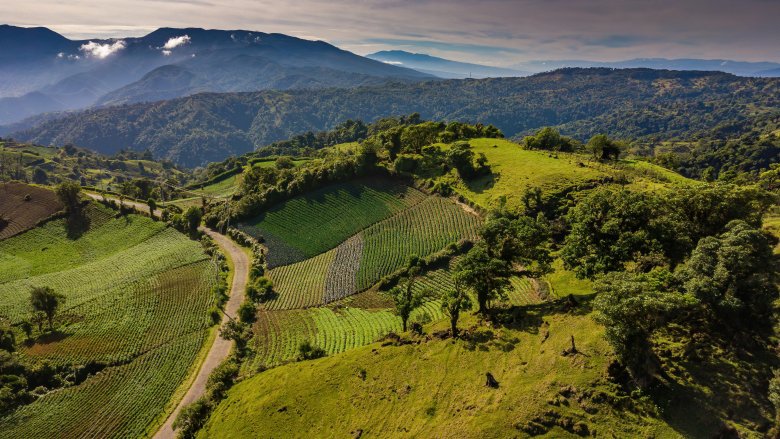When you think of Costa Rica, images of lush forests, waterfalls, and diverse wildlife may come to mind. These hallmarks of natural beauty are spot on for the country, given that over half of Costa Rica’s national land area is forested and over a quarter is under some form of state-monitored environmental protection. Costa Rica’s investments in nature and environmental protection have paid off in several ways as the country is recognized internationally as an ecotourism destination and a conservation leader.
However, Costa Rica’s commitment to rehabilitating and conserving forest ecosystems goes well beyond conservation alone, and is fundamental to its development strategy across many sectors. In particular, protection of its rich natural resource endowment underpins the development of the country’s agricultural sector, which both depends on and, at times, adversely impacts, forests, land, water, biodiversity and other natural resources. Maintaining healthy forest ecosystems while promoting sustainable agricultural growth is also core to Costa Rica’s efforts to reduce poverty and improve livelihoods in rural areas where poverty rates can more than double the national average of 20 percent and people depend heavily on agriculture for income.
Successfully balancing forest conservation and other land uses to achieve Costa Rica’s conservation, economic growth, and poverty reduction goals requires collaboration and informed action across different groups of land users and stakeholders. To harmonize and jointly leverage the country’s agricultural and environmental agendas, the Government of Costa Rica formulated an “Agro-environmental Agenda” among its Ministry of Agriculture (MAG) and Ministry of Environment and Energy (MINAE). The Agenda has a wide range of objectives, ranging from improving the efficiency of food systems to meeting its global commitments related to climate change through Nationally Appropriate Mitigation Actions (NAMAs) to reduce greenhouse gas emissions along key agriculture value chains.
Within this context, the World Bank through PROGREEN is providing support to help Costa Rica achieve multiple uses and benefits within a given landscape through an integrated landscape management approach. Activities within this program are helping to enhance the government’s capacity to design integrated landscape management policies and programs in rural areas in collaboration with MAG and MINAE. The program is focused on providing support in the following areas:
Advancing NAMAs and climate adaptation: PROGREEN is helping to identify options for establishing the business case to scale up the country’s NAMAs already in implementation for coffee and livestock and to design pilots for the NAMAs related to sugar cane, rice, and sugar cane, rice, and musaceas, a family of plants including banana and plantain. It will also contribute to a roadmap for the country’s first Agriculture Sector Adaptation Plan.
Spatial data and planning: By leveraging spatially-explicit data and territorial planning tools, PROGREEN will help identify how to monitor, in real time, environmental services delivered from integrated landscape management practices and tie this to a planned expansion of the country’s globally renowned payment for environmental services (PES) scheme.
Fiscal policy and financial program review: After assessing existing fiscal instruments and financial programs that influence the use of technologies and production systems in the agricultural sector, PROGREEN will identify options for better aligning fiscal policies and financial programs with the objectives of the low-carbon and climate resilience elements of the Agro-environmental Agenda.
The program is in part a pilot for testing different approaches to enhancing integrated landscape management with lessons learned extended to other countries in Central America. To facilitate such knowledge sharing among government agencies and stakeholders, PROGREEN will facilitate opportunities for sharing experiences with implementing these integrated landscape approaches within and beyond Costa Rica.
The activities outlined above are expected to help Costa Rica transition to more sustainable agriculture production systems that allow the country to meet its’ conservation and development goals in an integrated manner. It will also open the door a little wider for the country’s eco-tourism livelihood opportunities to move beyond forests and protected areas to include agricultural landscapes as well.

